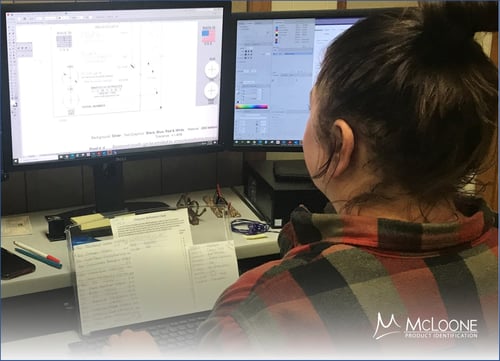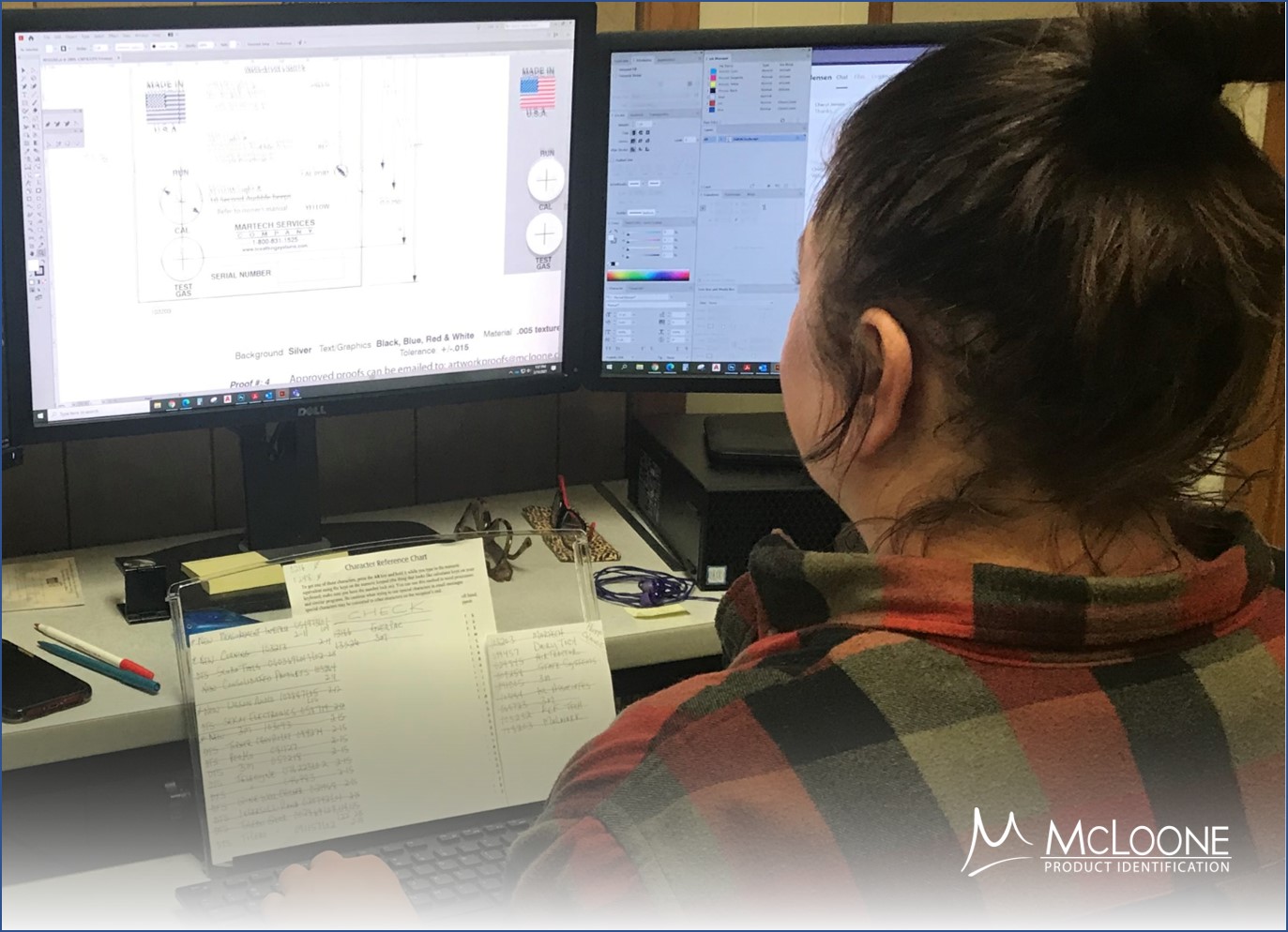The artwork file is one of the most important pieces of communication with your nameplate supplier. This details the dimensions, colors, decoration, and graphics that are needed so that your message and look is carried to the market correctly.
 To minimize delay in production and cost to redraw or rework artwork files, it is recommended to provide original art files instead of scanned images. Here are five minimum requirements that should be included in your file.
To minimize delay in production and cost to redraw or rework artwork files, it is recommended to provide original art files instead of scanned images. Here are five minimum requirements that should be included in your file.
-
Part dimensions - No matter if a basic circle or square, the dimensions are important to provide the scale and shape of your product identification.
-
Color callouts - Specify color with specific Pantone (PMS) color and their locations. If PMS color is not available, provide a reference to the color target.
-
Fonts - Convert to curves and send all fonts with the artwork files to avoid any font discrepancies. Also take into consideration text size and legibility.
-
Gloss level - Specify whether all over or selective and if low (matte) or high gloss is required.
-
Graphics and images - Save all images at high resolution, at 100% scale and in vector format. Be sure to have a minimum line thickness of .007" and keep any graphic or text at least .045" away from any edge or cutout area.
How Can We Help?
The graphic artists on our team at McLoone review every file for new projects before it goes to production. Any concerns or issues with the artwork file will be communicated to you. Costs for any adjustments or modifications to the artwork will be quoted for you.
Related Posts
3 Things to Expect from a Nameplate Project
5 Tips for Sourcing Nameplates and Labels


